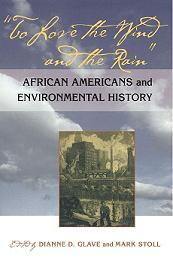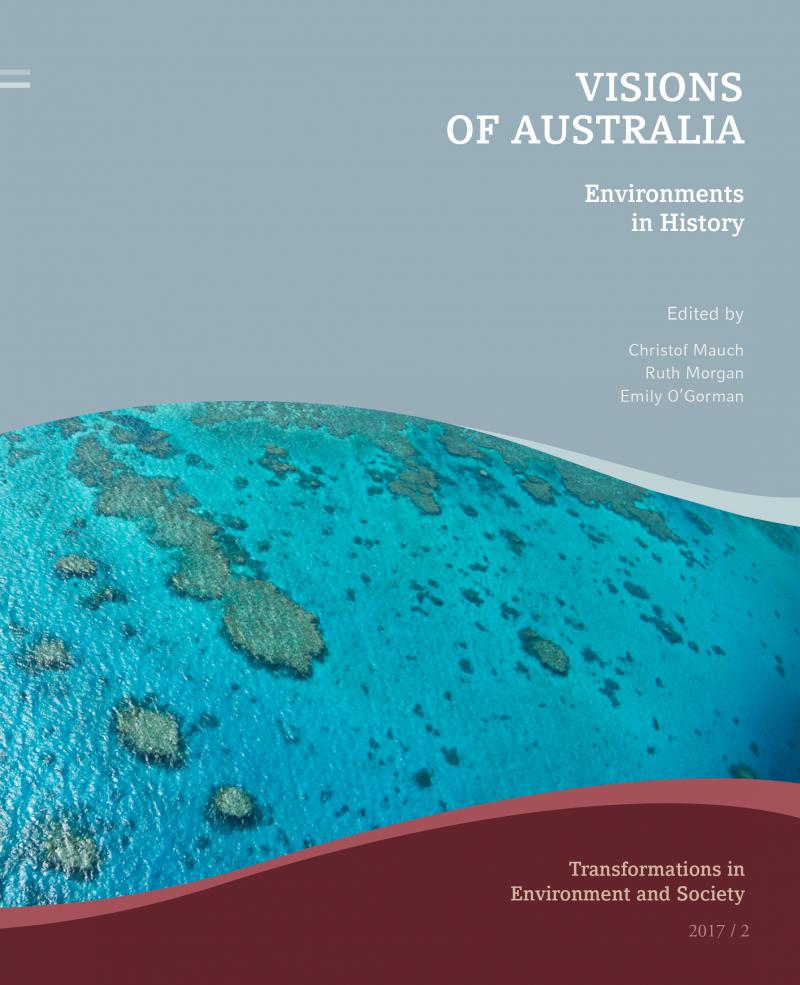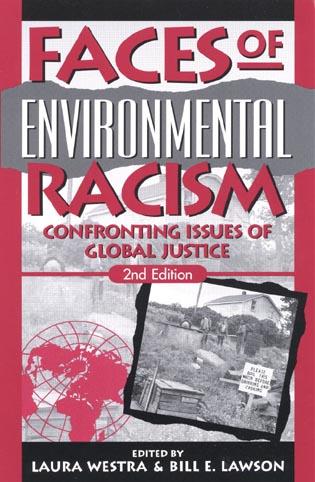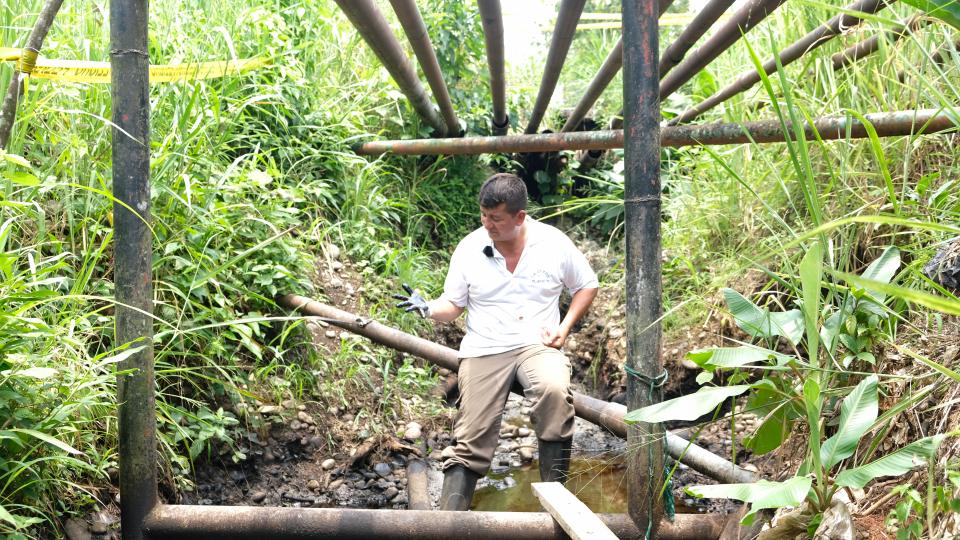
Los Afectados, the affected ones, have been living downstream of the oil production of the American company Texaco for half a century in the Oriente of Ecuador - their decades-long struggle for compensation and clean-up is ongoing. This image shows Donald Moncayo of Toxitours in front of one of the almost 800 oil pits left behind. Photograph by Maximilian Feichtner, 2018.
Los Afectados, the affected ones, have been living downstream of the oil production of the American company Texaco for half a century in the Oriente of Ecuador - their decades-long struggle for compensation and clean-up is ongoing. This image shows Donald Moncayo of Toxitours in front of one of the almost 800 oil pits left behind. Photograph by Maximilian Feichtner, 2018.
Photograph by Maximilian Feichtner, 2018.
 This work is licensed under a Creative Commons Attribution-NonCommercial 3.0 Unported License.
This work is licensed under a Creative Commons Attribution-NonCommercial 3.0 Unported License.
Los Afectados, the affected ones, have been living downstream of the oil production of the American company Texaco for half a century in the Oriente of Ecuador - their decades-long struggle for compensation and clean-up is ongoing. This image shows Donald Moncayo of Toxitours in front of one of the almost 800 oil pits left behind. Photograph by Maximilian Feichtner, 2018. See the virtual exhibition The Life of Waste by Simone Müller.
Environmental justice is both a social movement with global reach and an interdisciplinary academic field that addresses the inequalities embedded in the ongoing ecological crisis. The term first originated in the late 1970s and early 1980s in the United States as a sociopolitical response to environmental racism: that is the systemic racism and biased structural organization of society that disproportionately exposes people of color to pollutions, toxic chemicals, and other environmental burdens. Environmental justice denounces the fact that, far from an equalizing process, the ecological crisis exacerbates existing inequalities and dominations. At its core lies the documented observations that people around the world do not equally contribute to the environmental degradations of the Earth, nor do they equally endure their negative consequences. While poor people, women, indigenous communities, colonized and formerly colonized, people of color, particularly in the Global South, contribute very little to global warming and other environmental destructions, they are often the most exposed and vulnerable to their dire consequences. Environmental justice then stands as a call not only for the respect of our Earth, its various ecosystems, flora and fauna, but also for the implementation of worldwide conditions of justice, equality and dignity for the people excessively impacted.
As a complement to this growing resource page, the Rachel Carson Center for Environment and Society plans a series of commentaries to be published by its blog Seeing the Woods.
Contributing editors: Rachel Carson Center alumna fellows Malcom Ferdinand and Robert Gioielli, and RCC editor Kristy Henderson
Digital projects and collections
Center for Environmental Justice twitter feed, Colorado State University. https://twitter.com/EJCSU.
Environmental Action, 1970-1983. University of Pittsburgh Digital Collections. https://digital.library.pitt.edu/islandora/object/pitt%3A666953190/viewer. The magazine documents a commitment to an expansive definition of environmental issues in the movement’s early years, including issues of environmental justice.
“Environmental Justice.” Massachusetts Institute of Technology Course 11.368 by JoAnn Carmin. Fall 2004. MIT OpenCourseWare, https://ocw.mit.edu.
The Environmental Justice Atlas documents and catalogues social conflict around environmental issues. The Atlas is directed at ICTA-UAB by Leah Temper and Joan Martinez Alier and coordinated by Daniela Del Bene at the Institute of Environmental Science and Technology (ICTA) at the Universitat Autonoma de Barcelona. https://ejatlas.org/.
EJScreen is the US Environmental Protection Agency’s Environmental Justice Screening and Mapping Tool, combining environmental and demographic indicators (2019). https://www.epa.gov/ejscreen and https://ejscreen.epa.gov/mapper/.
#StandingRockSyllabus brings together the insights of anthropologists, historians, environmental scientists, and legal scholars into the conflicts between Indigenous sovereignty and resource extraction.
#FlipTheList! effort to diversify Wikipedia’s List of environmental books, sponsored by the ASEH Committee on Diversity, Inclusion, and Equity; ASEH Graduate Student Caucus; Environmental History Now; NiCHE New Scholars; and Women’s Environmental History Network.
Gaard, Greta. “The Literature of Environmental Justice.” Course ENG 228. University of Wisconsin, River Falls.
Halley, Catherine. “Institutionalized Racism: A Syllabus. How can we help students understand George Floyd’s death in the context of institutionalized racism?“ Education & Society (newsletter) JSTOR Daily.
Müller, Simone M. “The Life of Waste.” Environment & Society Portal, Virtual Exhibitions 2018, no. 3. Rachel Carson Center for Environment and Society. doi.org/10.5282/rcc/8452.
Native Land Digital. “native-land.ca” Native Land, British Columbia. https://native-land.ca.
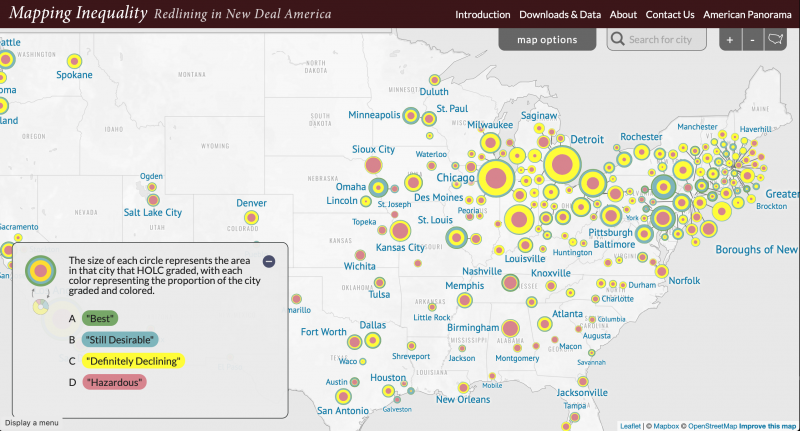
The project Mapping Inequality: Redlining in New Deal America visualizes the redlining (designation of “high risk” areas whose residents were ineligible for home loans) of more than 200 cities in the 1930s, influencing opportunities and attitudes in the US to the present day.
The project Mapping Inequality: Redlining in New Deal America visualizes the redlining (designation of “high risk” areas whose residents were ineligible for home loans) of more than 200 cities in the 1930s, influencing opportunities and attitudes in the US to the present day.
Nelson, Robert K., LaDale Winling, Richard Marciano, Nathan Connolly, et al., “Mapping Inequality” American Panorama, ed. Robert K. Nelson and Edward L. Ayers.
 This work is licensed under a Creative Commons Attribution-NonCommercial-ShareAlike 4.0 International License.
This work is licensed under a Creative Commons Attribution-NonCommercial-ShareAlike 4.0 International License.
Nelson, Robert K., LaDale Winling, Richard Marciano, Nathan Connolly, et al., “Mapping Inequality,” American Panorama, ed. Robert K. Nelson and Edward L. Ayers. https://dsl.richmond.edu/panorama/redlining/#loc=5/39.1/-94.58.
Race and Nature, resources. Compiled by April Anson. 10 July 2020. https://april-anson.com/2020/06/10/race-and-nature-resources/.
Saunt, Claudio and Stephen Berry. “Invasion of America. How the United States Took Over an Eighth of the World.” eHistory.org, University of Georgia. https://usg.maps.arcgis.com/apps/webappviewer/index.html?id=eb6ca76e008543a89349ff2517db47e6.
Sengupta, Somini. “Read Up on the Links Between Racism and the Environment.” The New York Times, 5 June 2020. https://www.nytimes.com/interactive/2020/06/05/climate/racism-climate-change-reading-list.html.
“Slave Voyages.” Voyages: The Trans-Atlantic Slave Trade Database. https://www.slavevoyages.org.
#StandingRockSyllabus. NYC Stands with Standing Rock Collective. 2016. https://nycstandswithstandingrock.wordpress.com/standingrocksyllabus/.
Taylor, Bron. “Radical Environmentalism’s Print History: From Earth First! to Wild Earth.” Environment & Society Portal, Virtual Exhibitions 2018, no. 1. Rachel Carson Center for Environment and Society. doi.org/10.5282/rcc/7988. See specificially the digital collection of Earth First! and other publications.
Ten Books to Contextualize Environmental Racism. NiCHE Canada. 8 July 2020. https://niche-canada.org/2020/07/08/ten-books-to-contextualize-environmental-racism/?fbclid=IwAR0ijyJ0BWHxhTLgfiNkcjH9HXpIWhIv_WiVbz2OB00pUDgK4Mr-XAYgyvg and the corresponding blog series “Whose Nature?” https://niche-canada.org/tag/whose-nature/.
Toxic Bios: A Guerrilla Heritage Project is a public environmental humanities project of the KTH Environmental Humanities Laboratory and the Seed Box, publishing “toxic autobiographies” of marginalized groups experiencing environmental injustice. http://www.toxicbios.eu/.
Toxic Docs. Public data effort to make millions of documents related to toxic waste and poisoning litigation available to the public. Columbia University and the City University of New York. https://www.toxicdocs.org.
Toxic Legacies Project. Arn Keeling and John Sandlos of Memorial University, Newfoundland, coordinate this project to communicate the historical impacts of abandoned mines on First Nations communities in northern Canada. http://www.toxiclegacies.com/.
Further resources
Chakrabarty, Dipesh. “Postcolonial Studies and the Challenge of Climate Change.” New Literary History 43, no. 1 (2012): 1–18.
Chakrabarty, Dipesh. “Climate and Capital: On Conjoined Histories.” Critical Inquiry 41, no. 1 (2014): 1–23.
Chenoweth, Michael. The Eighteenth-Century Climate of Jamaica Derived from the Journals of Thomas Thistlewood, 1750–1786. Philadelphia: American Philosophical Society, 2003.
Commission for Racial Justice. Toxic Wastes and Race in the United States: A National Report on the Racial and Socio-economic Characteristics of Communities with Hazardous Waste Sites. New York: Commision for Racial Justice; United Church of Christ, 1987. Original groundbreaking report from 1987 delineating the prevalence of toxic waste facilities in minority communities in the United States. https://www.nrc.gov/docs/ML1310/ML13109A339.pdf.
DeLoughrey, Elizabeth, Jill Didur, and Anthony Carrigan, eds. Global Ecologies and the Environmental Humanities: Postcolonial Approaches. London, New York: Routledge, 2015.
DeLoughrey, Elizabeth M., and George B. Handley, eds. Postcolonial Ecologies: Literatures of the Environment. New York: Oxford University Press, 2011.
Dicenta, Mara. “The Beavercene: Eradication and Settler-Colonialism in Tierra del Fuego.” Environment & Society Portal, Arcadia (Spring 2020), no. 1. Rachel Carson Center for Environment and Society.
Dumas, Daniel. “Problematic Postage: Canada’s Claim to the Arctic through a Postage Stamp.” Environment & Society Portal, Arcadia (Summer 2020), no. 25. Rachel Carson Center for Environment and Society.
Emmett, Robert, and Thomas Lekan, eds. “Whose Anthropocene? Revisiting Dipesh Chakrabarty’s ‘Four Theses,’” RCC Perspectives: Transformations in Environment and Society 2016, no. 2 (2016). doi.org/10.5282/rcc/7421.
Eperjesi, John R. “Race, Nature, and W.E.B Du Bois” in Seeing the Woods 20 July 2020. https://seeingthewoods.org/2020/07/20/race-nature-and-w-e-b-du-bois/.
Ferdinand, Malcom. A Decolonial Ecology: Voices from the Hold of Modernity. 31 March 2020. 49:24 min. https://youtu.be/NNaLugt7cdI.
Gabrielson, Teena. “The Visual Politics of Environmental Justice.” Environmental Humanities 11, no. 1 (2019): 27–51. https://doi.org/10.1215/22011919-7349396.
Garcia, Lindsay. “American Cockroaches, Racism, and the Ecology of the Slave Ship.” Environment & Society Portal, Arcadia (Autumn 2017), no. 29. Rachel Carson Center for Environment and Society. doi.org/10.5282/rcc/8048.
Gardiner, Beth. “Unequal Impact: The Deep Links Between Racism and Climate Change.” Yale Environment 360 (interview with Elizabeth Yeampierre). https://e360.yale.edu/features/unequal-impact-the-deep-links-between-inequality-and-climate-change.
Gatheru, Wanjiku. “It’s Time for Environmental Studies to Own Up to Erasing Black People.” Vice (blog). https://www.vice.com/en_us/article/889qxx/its-time-for-environmental-studies-to-own-up-to-erasing-black-people?
Glave, Dianne D., and Mark Stoll, eds. To Love the Wind and the Rain: African Americans and Environmental History. Pittsburgh: University of Pittsburgh Press, 2011.
Gissibl, Bernhard. The Nature of German Imperialism: Conservation and the Politics of Wildlife in Colonial East Africa. New York, Oxford: Berghahn Books, 2016.
Goeckeritz, Issac, Hal Crimmel, and María Valeria Berros. The Rights of Nature: A Global Movement. YouTube video, 52:43. 2020. https://www.youtube.com/watch?v=kuFNmH7lVTA, and with Spanish subtitles: https://www.youtube.com/watch?v=RupkZM8dV14&t=237s.
Hare, Nathan. “Black Ecology.” The Black Scholar 1, no. 6 (1970): 2-8. www.jstor.org/stable/41163443.
Jacobs, Nancy. Environment, Power and Injustice: A South African History. Cambridge: Cambridge University Press, 2003.
Johnson, Ayana Elizabeth. “I’m a Black Climate Expert. Racism Derails Our Efforts to Save the Planet.” PostEverything (Perspective). The Washington Post, 3 June 2020. Listen to the NPR “Short Wave” interview (18 June 2020) with Ayana E. Johnson here.
External podcast: Listen to the NPR “Short Wave” interview (18 June 2020) with Ayana E. Johnson here. https://www.npr.org/2020/06/16/878941532/the-inseparable-link-between-climate-change-and-racial-justice?t=1593080181755.
Kaltmeier, Olaf. Nationalparks von Nord bis Süd: Eine transnationale Verflechtungsgeschichte von Naturschutz und Kolonialisierung in Argentinien. Bielefeld: Kipu-Verlag, 2020.
Kheraj, Sean. “Whose Nature? Race and Canadian Environmental History.” NiCHE Canada. 7 July 2020. https://niche-canada.org/tag/whose-nature/.
Kreike, Emmanuel. “Wildlife Conservation Causes Deforestation in Colonial Namibia.” Environment & Society Portal, Arcadia (2015), no. 15. Rachel Carson Center for Environment and Society. https://doi.org/10.5282/rcc/7308.
Kwashirai, Vimbai. “Ecological Impacts of Land Struggles in Makonde District, Zimbabwe: 1890 to Present.” Environment & Society Portal, Arcadia (Summer 2017), no. 21. Rachel Carson Center for Environment and Society. doi.org/10.5282/rcc/7935.
LaRocco, Annette A. “Memory as Claim-making in Kalahari Socio-environments.” In “Sites of Remembering: Landscapes, Lessons, Policies,” edited by Vikas Lakhani and Eveline de Smalen, 27–32. RCC Perspectives: Transformations in Environment and Society, no. 3 (2018). doi.org/10.5282/rcc/8483.
Leal, Claudia, José Augusto Pádua, and John Soluri (eds.), “New Environmental Histories of Latin America and the Caribbean,” RCC Perspectives, no. 7 (2013). doi.org/10.5282/rcc/5921.
Longley, Hereward. “Bitumen Exploration and the Southern Re-Inscription of Northeastern Alberta: 1875–1967.” In “Environmental Knowledge, Environmental Politics,” edited by Jonathan Clapperton and Liza Piper, 17– 24. RCC Perspectives: Transformations in Environment and Society, no. 4 (2016). https://doi.org/10.5282/rcc/7695.
Massard-Guilbaud, Geneviève, and Richard Rodger, eds. Environmental and Social Justice in the City: Historical Perspectives. Cambridge: The White Horse Press, 2011.
Mauch, Christof, Morgan, Ruth, and O’Gorman, Emily, eds. “Visions of Australia: Environments in History,” RCC Perspectives: Transformations in Environment and Society 2017, no. 2. doi.org/10.5282/rcc/7902.
Mavhunga, Clapperton Chakanetsa, and Helmuth Trischler, eds. “Energy (and) Colonialism, Energy (In)Dependence: Africa, Europe, Greenland, North America.” RCC Perspectives, no. 5 (2014). doi.org/10.5282/rcc/6554.
McKibben, Bill. “Racism, Police Violence, and the Climate Are Not Separate Issues.” Annals of a Warming Planet (newsletter), The New Yorker, 4 June 2020. https://www.newyorker.com/news/annals-of-a-warming-planet/racism-police-violence-and-the-climate-are-not-separate-issues.
Miller, Daegan. “At Home in the Great Northern Wilderness: African Americans and Freedom’s Ecology in the Adirondacks, 1846-1859.” Environmental Humanities 2 (May 2013): 117–46.
Myers, Jeffrey. Converging Stories: Race, Ecology, and Environmental Justice in American Literature. Athens: University of Georgia Press, 2005.
Musavengane, Regis, and Llewellyn Leonard. “When Race and Social Equity Matters in Nature Conservation in Post-apartheid South Africa.” Conservation & Society 17, no. 2 (2019): 135–46. https://doi.org/10.4103/cs.cs_18_23.
Paterson, Adam, and Chris Wilson. “Ngarrindjeri Whaling Narratives and Reconciliation at Encounter Bay, South Australia.” In “New Histories of Pacific Whaling,” edited by Ryan Tucker Jones and Angela Wanhalla, 91– 97. RCC Perspectives: Transformations in Environment and Society 2019, no. 5. doi.org/10.5282/rcc/8967.
Roane, J.T. and Justin Hosbey. “Mapping Black Ecologies.” Current Research in Digital History 2 (2019). https://doi.org/10.31835/crdh.2019.05.
Southwest Organizing Project Letter to the “Group of Ten.” A major critique of “mainstream” environmental justice organizations and how their policies actually harmed marginalized communities. https://www.ejnet.org/ej/swop.pdf
Stewart, Mart A. “If John Muir Had Been an Agrarian: American Environmental History West and South.” Environment and History 11, no. 2 (May 2005): 139–62. doi:10.3197/096734005774434575.
Tabos Hillebrecht, Anna Leah, and María Valeria Berros, eds. “Can Nature Have Rights? Legal and Political Insights,” RCC Perspectives: Transformations in Environment and Society, no. 6 (2017). doi.org/10.5282/rcc/8164.
Todd, Zoe. “An Indigenous Feminist’s Take On The Ontological Turn: ‘Ontology’ Is Just Another Word For Colonialism.” Journal of Historical Sociology 29, no. 1 (2016): 4–22. doi: 10.1111/johs.12124.
Wadewitz, Lissa. “The American Animal Welfare Movement and Pacific Whaling.” In “New Histories of Pacific Whaling,” edited by Ryan Tucker Jones and Angela Wanhalla, 11–16. RCC Perspectives: Transformations in Environment and Society, no. 5 (2019). doi.org/10.5282/rcc/8957.
Westra, Laura, and Bill E. Lawson, eds. Faces of Environmental Racism: Confronting Issues of Global Justice. 2nd ed. Lanham, MD: Rowman and Littlefield, 2001.
Yang, K. Wayne and Eve Tuck. “Decolonization is not a metaphor.” Decolonization: Indigeneity, Education, & Society 1, no. 1 (2012): 1–40.
Yusuff, Kathryn. A Billion Black Anthropocenes or None. Minneapolis: University of Minnesota Press, 2018. https://doi.org/10.5749/9781452962054.
Linking policy
The Environment & Society Portal provides links to third party sites that are not under the Portal’s control. These links are provided as a convenience and for informational purposes only; they do not indicate the Portal’s endorsement of or sponsorship of the third party or its website content, including any advertisements that may be posted. The Portal has no control over and bears no responsibility for the accuracy or legality of externally linked content. The Environment & Society Portal encourages other websites’ use of hyperlinks to direct visitors to the Portal home page or other Portal pages. Such links shall not imply or infer that the linking organization, its products, or services are endorsed by the Environment & Society Portal or the Rachel Carson Center for Environment and Society.


